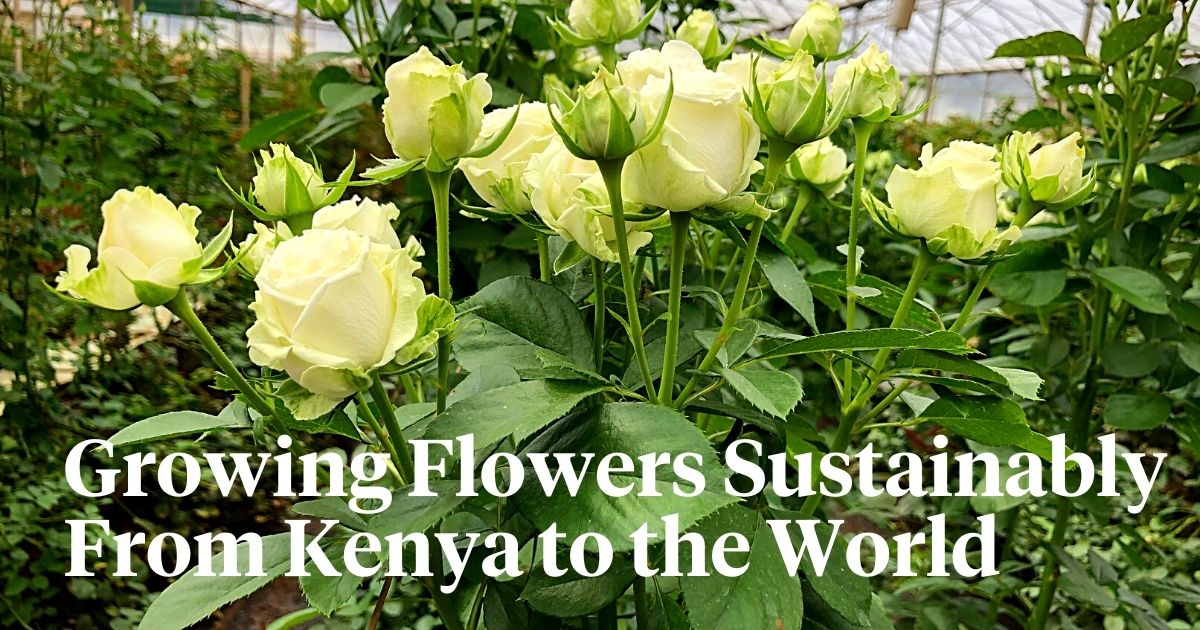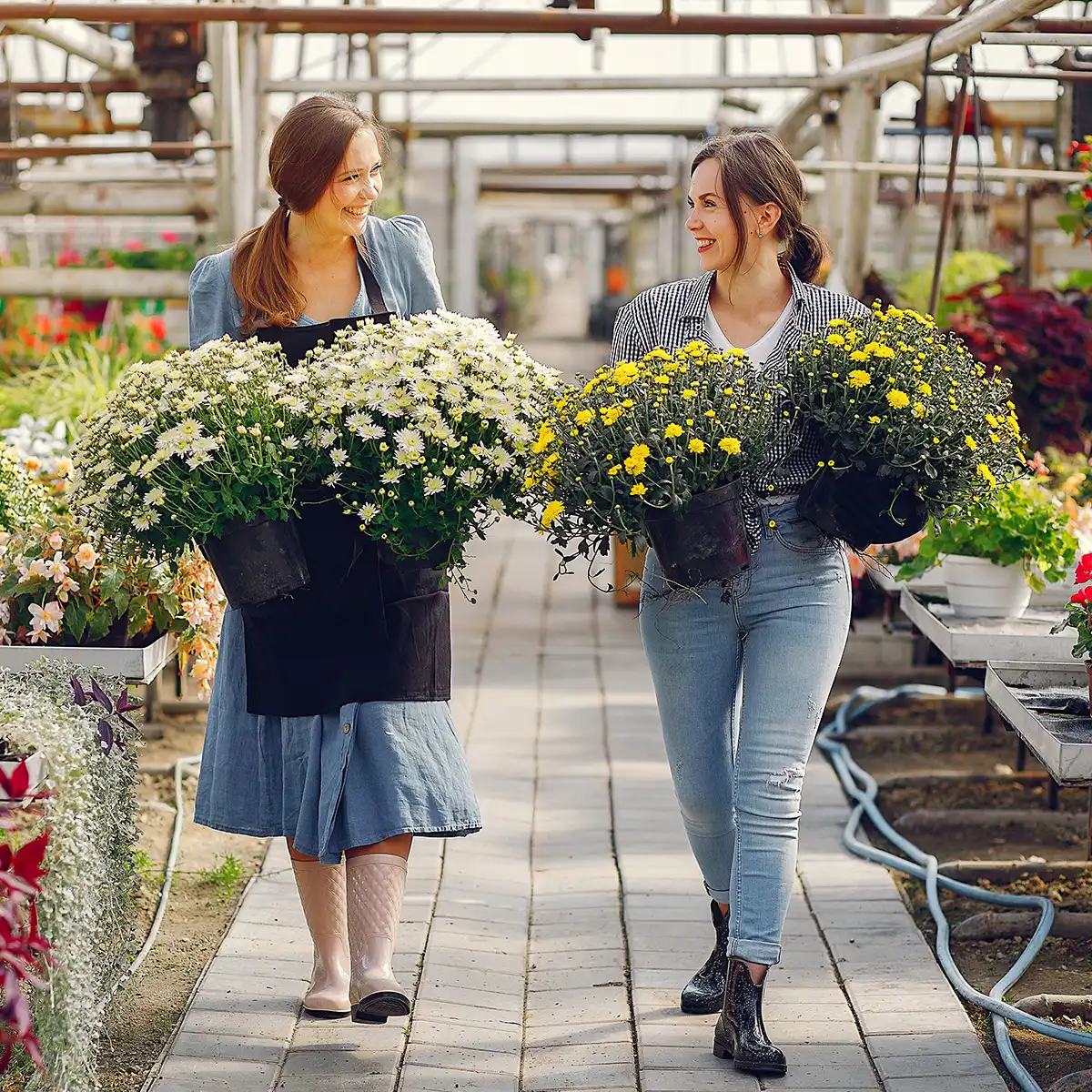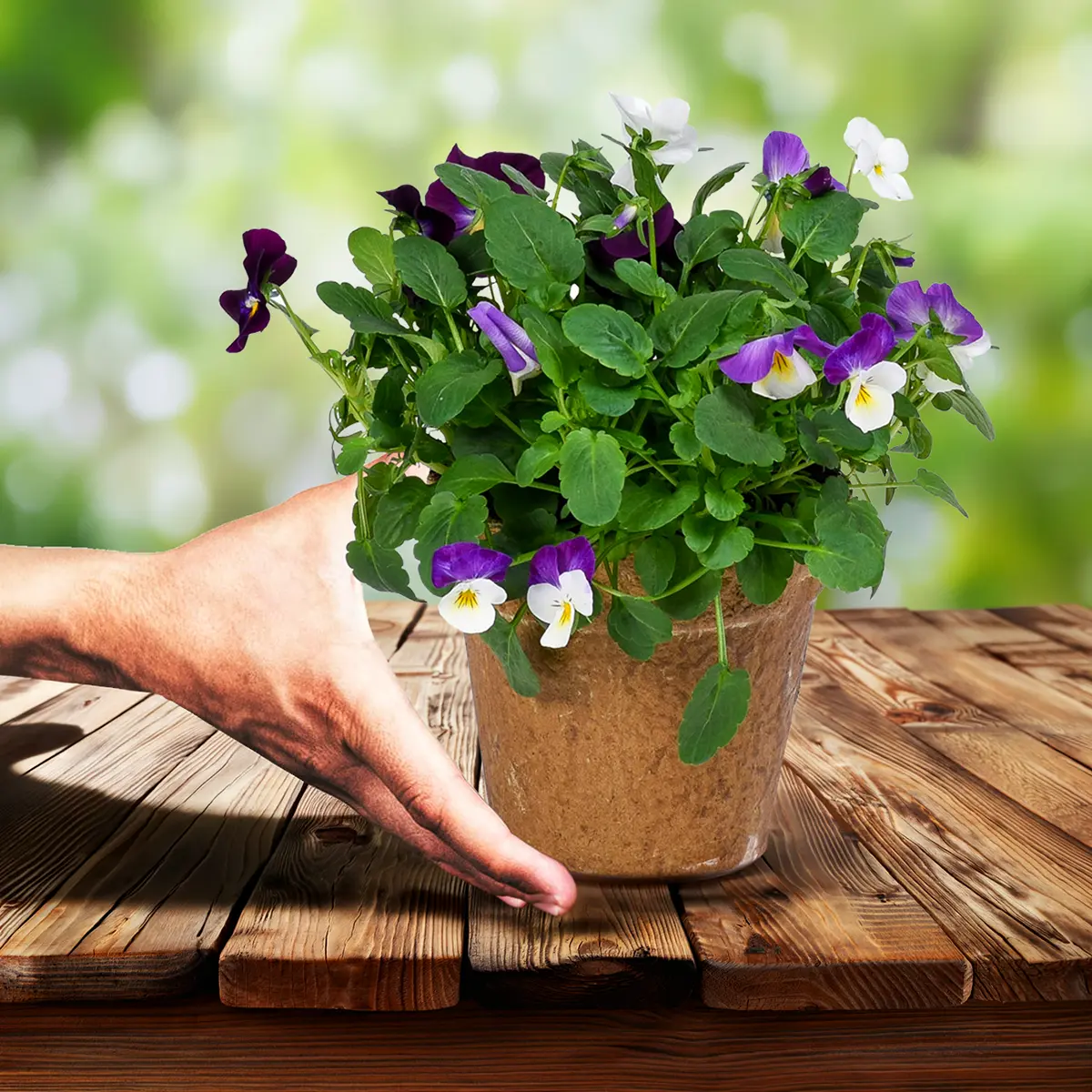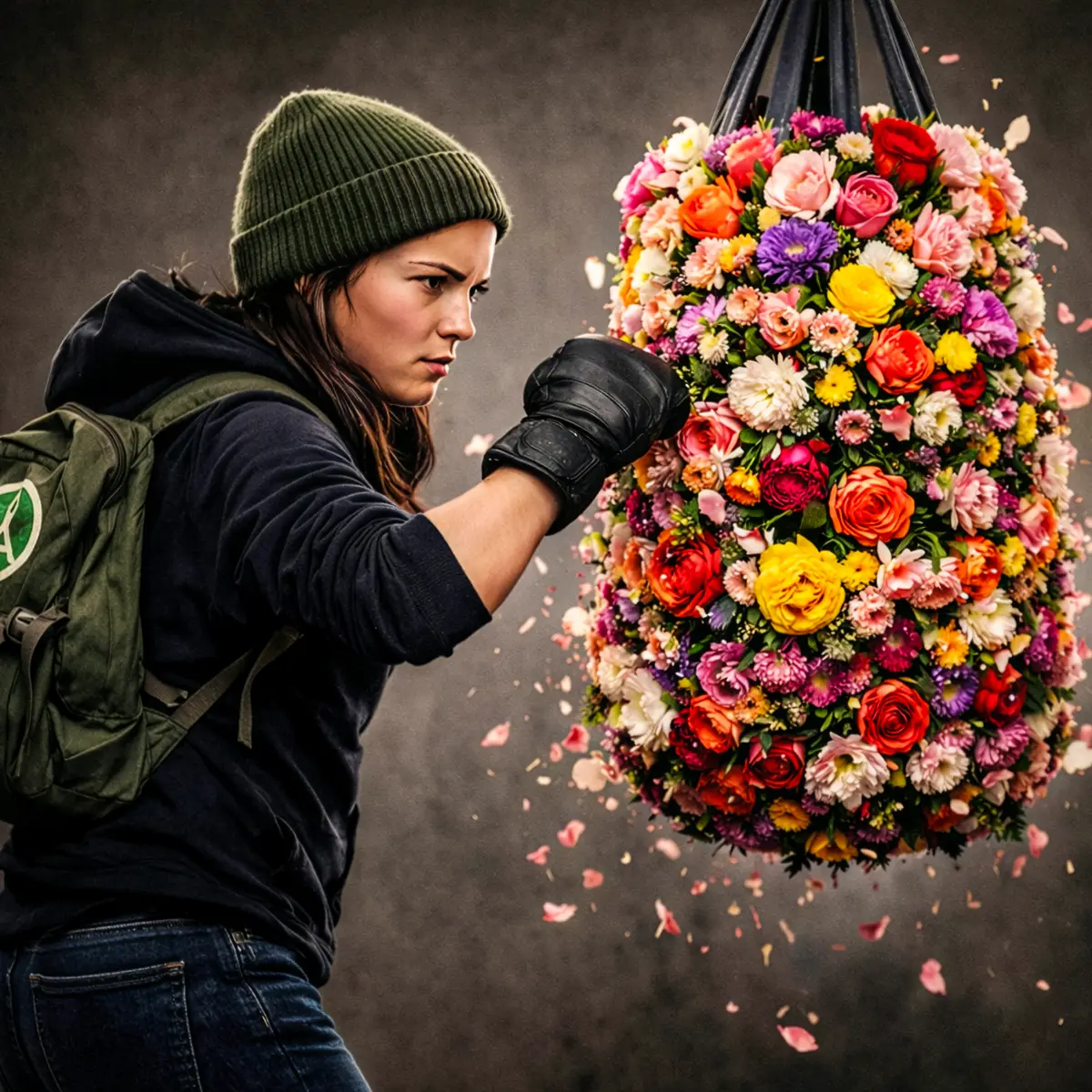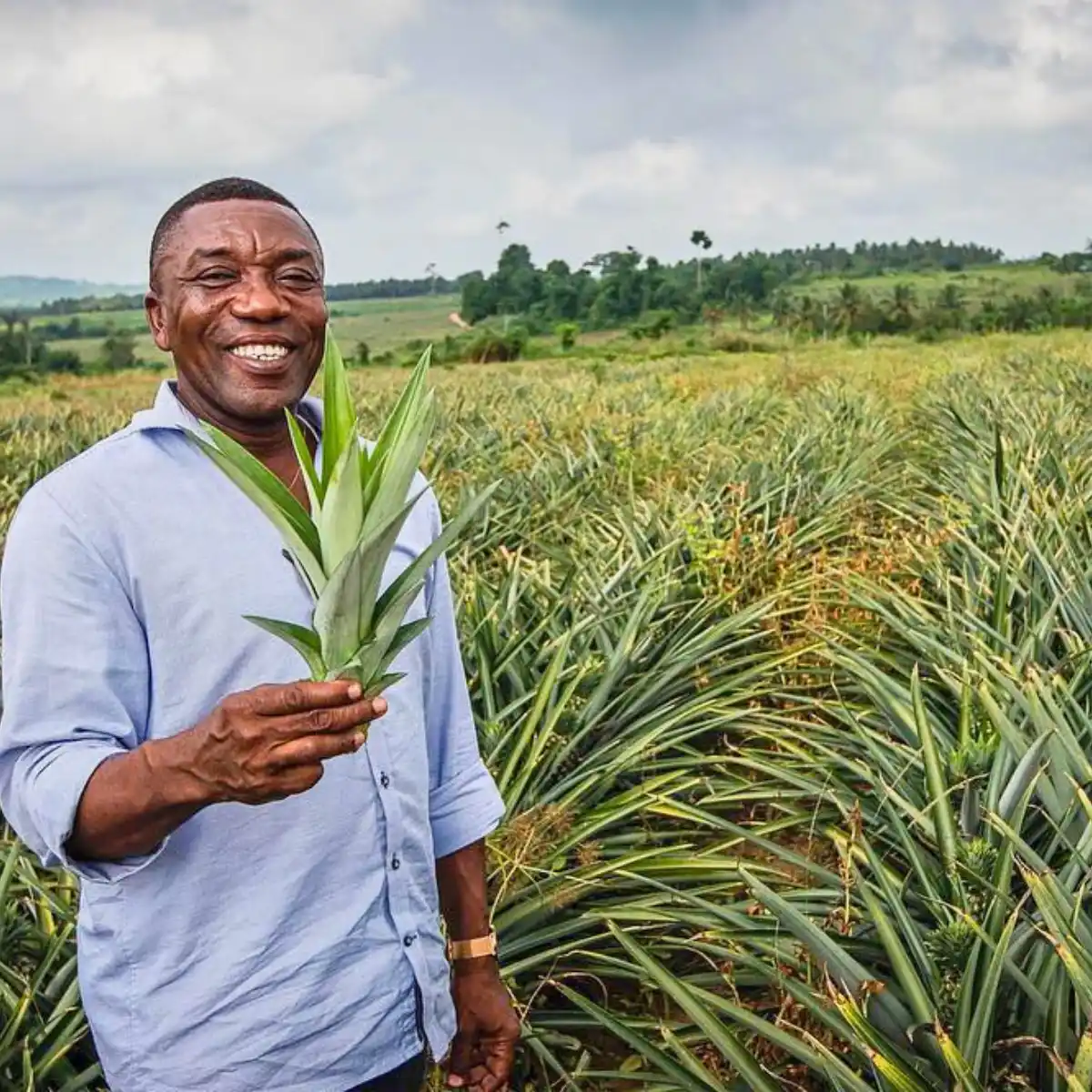In a world where sustainability has become more than just a buzzword, the flower industry in Kenya is emerging as a vibrant pioneer in embracing eco-friendly practices.
From the sprawling flower farms of Kenya to the elegant bouquets adorning homes and flower shops across the globe, the floriculture sector is blooming with green initiatives that not only enhance the beauty of our lives but also protect our planet.
Kenya's Sustainable Flower Farms Are a Flourishing Eco-Revolution
Straddling the equator, where the African sun continually shines, Kenya has long been renowned as a hub for the flower industry. With vast expanses of fertile land, the nation has for quite a while been gradually embracing and adopting sustainable practices, and revolutionizing the way flowers are grown and traded.
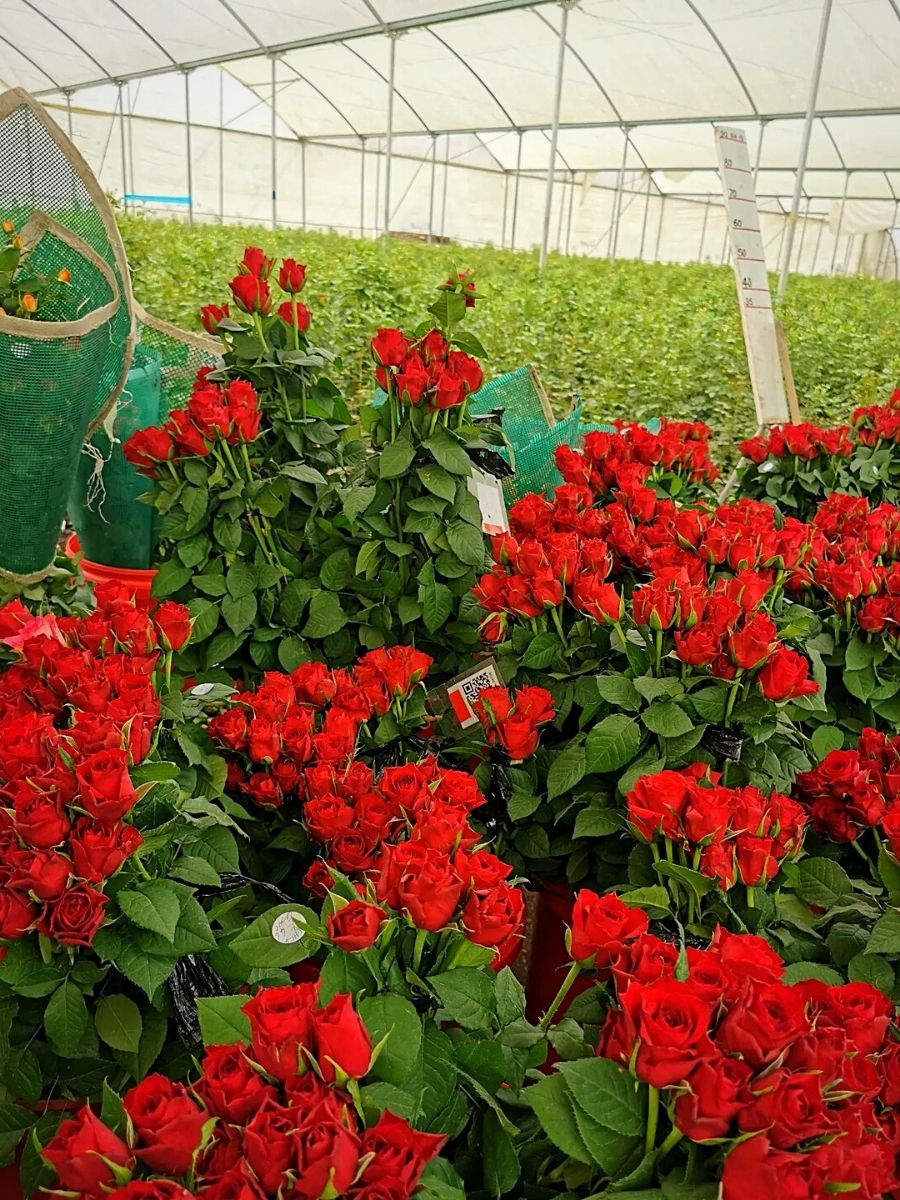
Photo by @sianflowerskenya.
The flower farms in Kenya have been proactive in adopting eco-friendly technologies such as the use of hydroponics, water management practices, integrated pest management, drip irrigation, rainwater harvesting, solar power, and ongoing trials for the sea freight of flowers.
By harnessing renewable energy and minimizing water usage, these farms have significantly reduced their carbon footprint while ensuring a steady supply of vibrant blossoms.
Moreover, the focus on sustainable farming practices has extended to waste management. Flower farms in Kenya have embraced composting techniques, effectively transforming organic waste into nutrient-rich fertilizers.
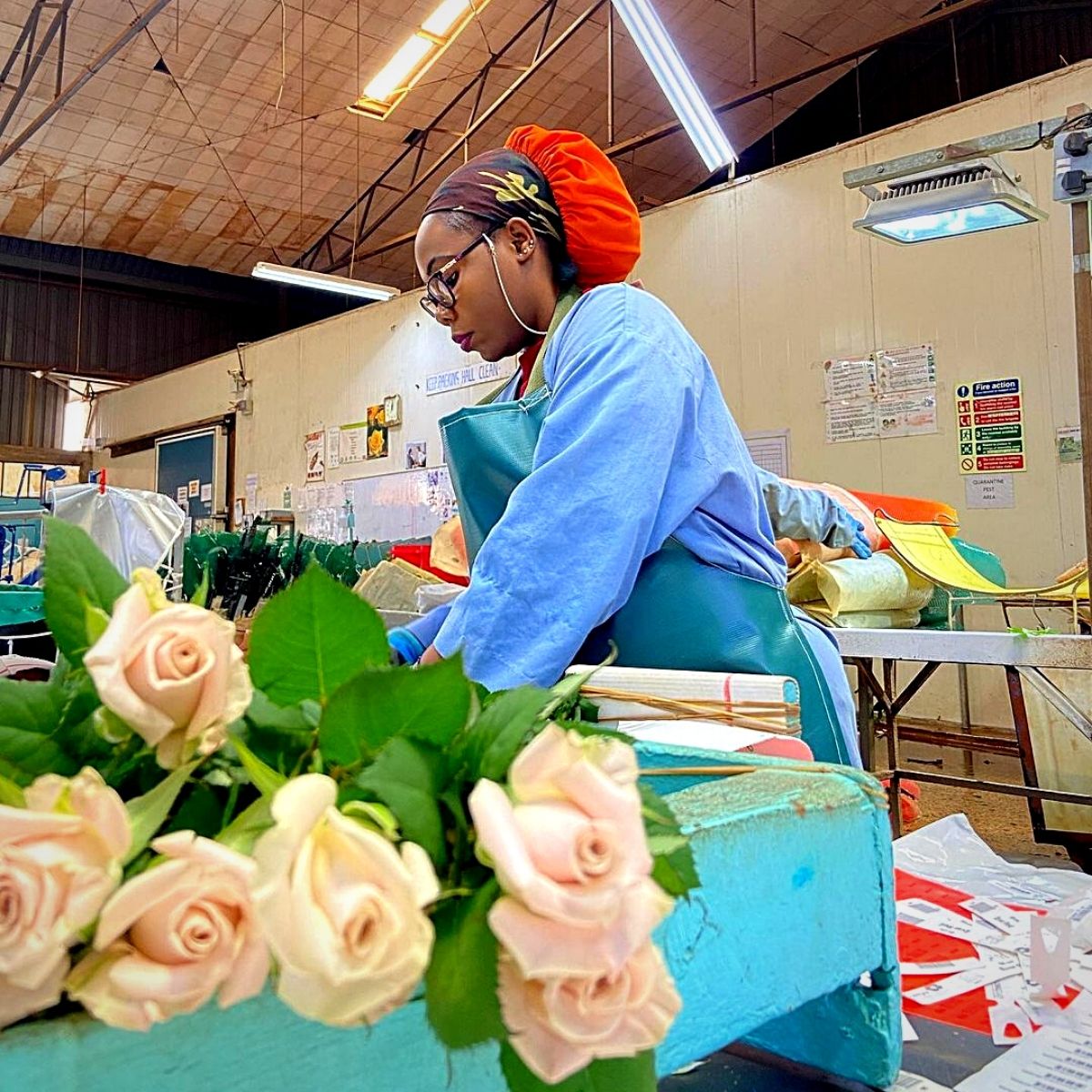
Photo by @red_lands_roses_plc.
By closing the loop and reducing reliance on chemical fertilizers, these farms not only protect the environment but also promote soil health and biodiversity.
Customer Empowerment and the Rise of Sustainable Floral Choices
Customers have become increasingly conscious of the environmental impact of their purchasing decisions, and the flower industry has responded in kind.
Sustainable floriculture has gained popularity worldwide, driven by a growing demand for ethically sourced and environmentally friendly blooms. Customers are now seeking flowers that are not only visually appealing but also come with a green conscience.
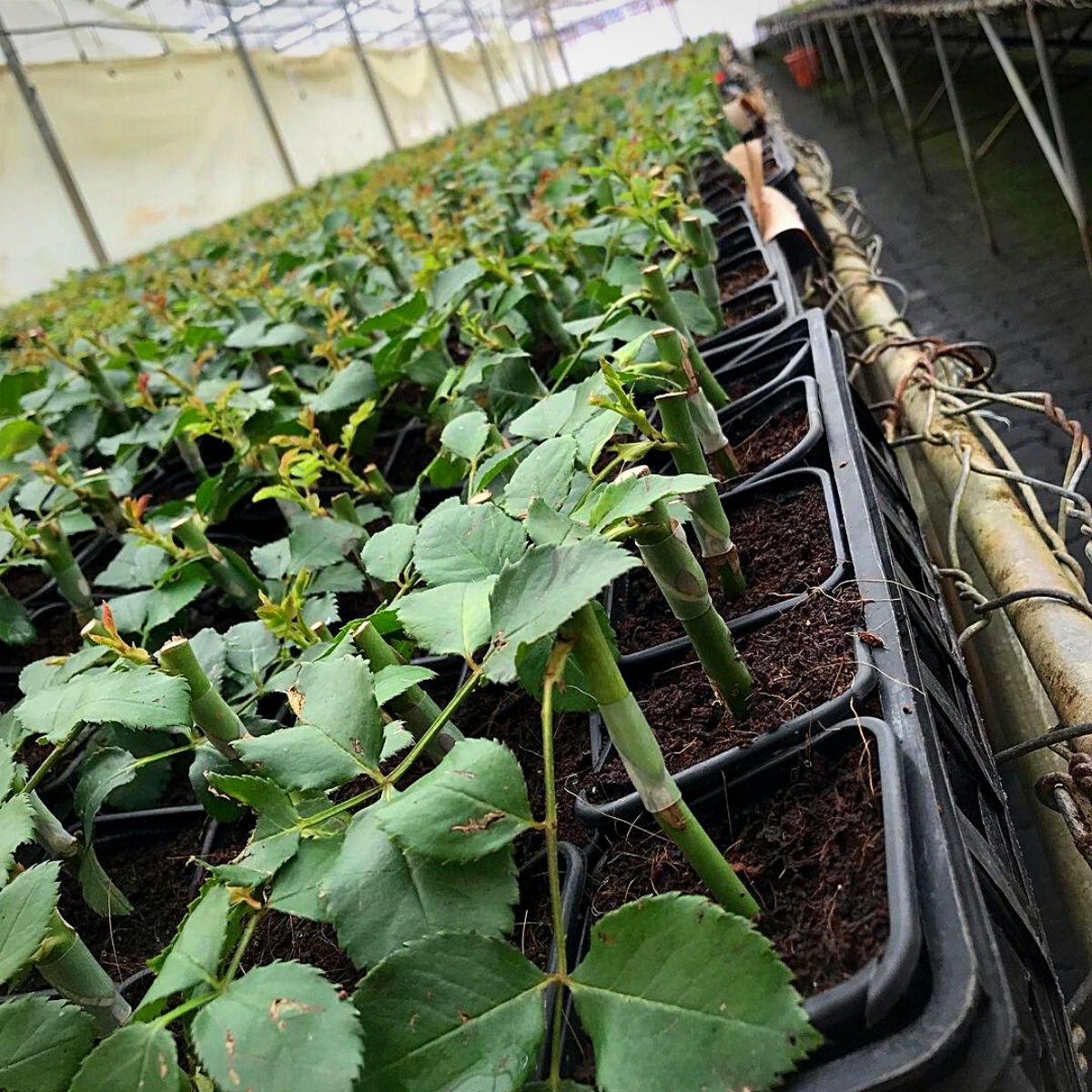
Photo by @sianflowerskenya.
Certification schemes like Fairtrade, KS:1758, Kenya Flower Council’s Flowers and Ornamental Sustainability Standard (F.O.S.S) which is popularly known as KFC Silver, and Rainforest Alliance have played a crucial role in empowering customers and enhancing sustainable floriculture.
These labels ensure that flowers are cultivated and traded in a socially and environmentally responsible manner. By choosing certified blooms, customers can rest assured that their purchases support fair wages for workers, protect ecosystems, and mitigate climate change.
Innovations in Sustainability Mean a Greener Floral Future
In the quest for sustainability, the flower industry has turned its attention to the often-overlooked aspect of packaging. Traditionally, flowers have been adorned with excessive plastic wrapping and non-recyclable materials.
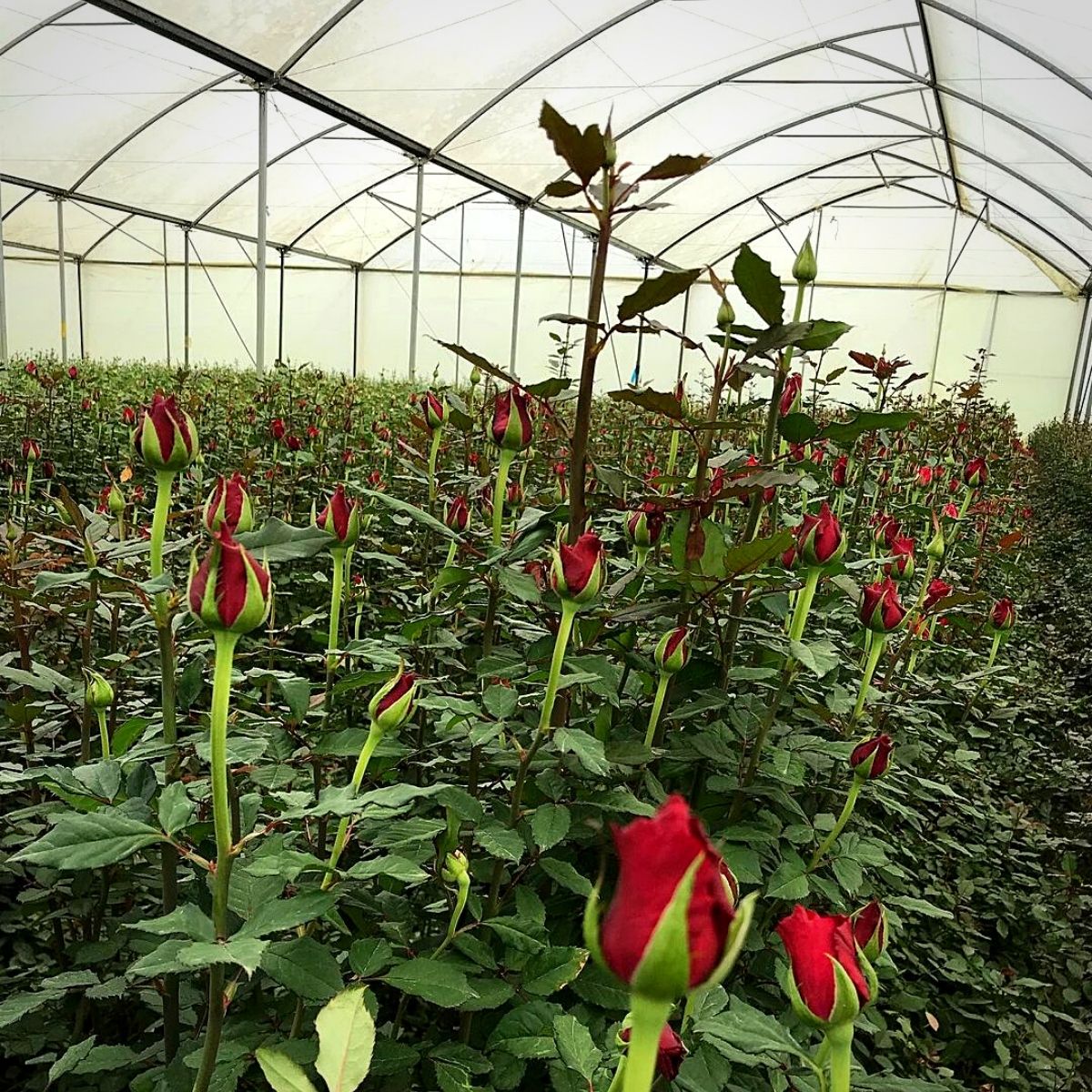
Photo by @sianflowerskenya.
However, conscious of the need to minimize waste, the industry has taken significant strides to adopt eco-friendly packaging alternatives. Biodegradable and compostable materials, such as paper wraps and plant-based plastics, are gaining popularity.
Additionally, innovative designs that minimize packaging while preserving the freshness and beauty of flowers have emerged. By reducing plastic waste and embracing sustainable packaging, the flower industry is moving closer to a greener future.
Sustainable Partnerships Create Collaborations for a Flourishing Green Future
The journey toward sustainability in the flower industry is marked by collaborative efforts. Growers, retailers, and consumers are increasingly coming together to foster a more sustainable floral sector.
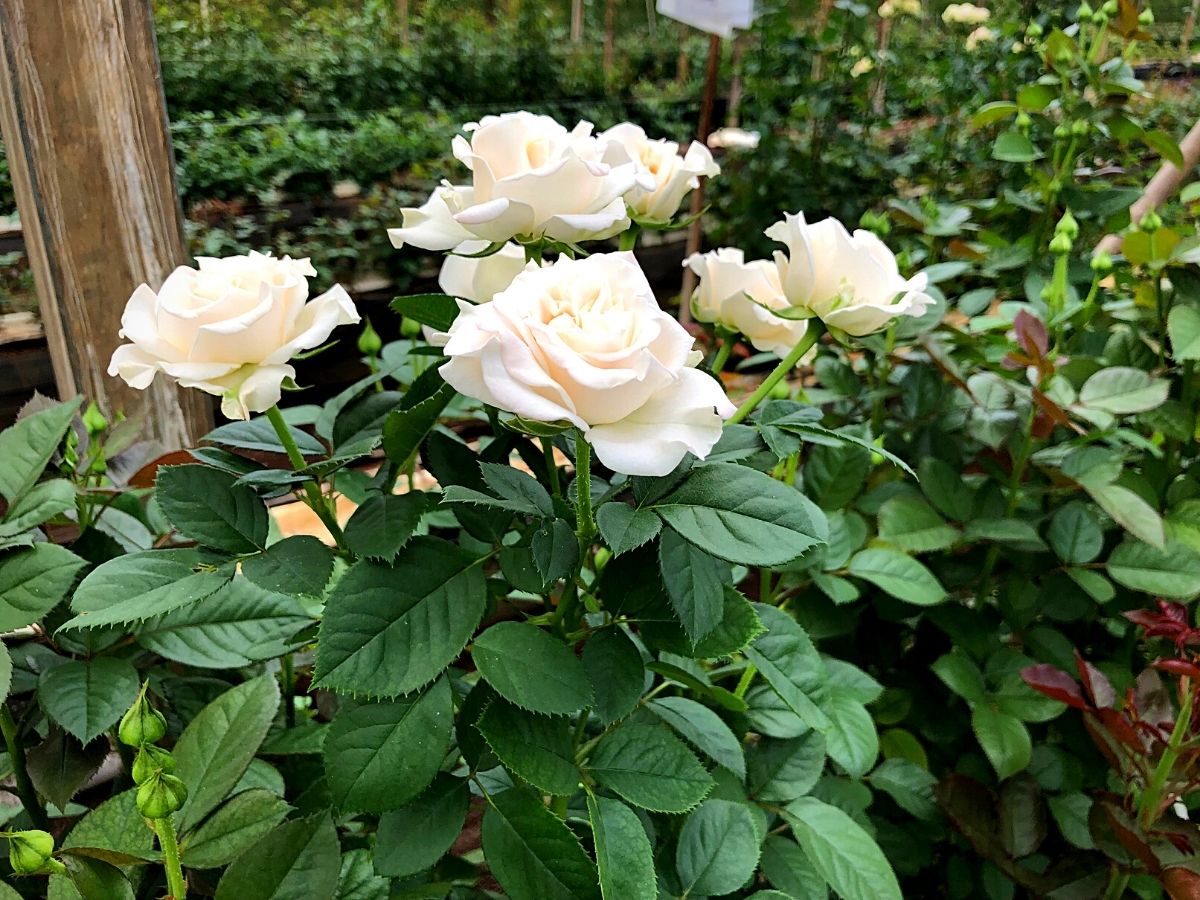
Partnerships between flower farms and environmental organizations have led to the development of best practices and the implementation of eco-friendly initiatives.
Additionally, technology and data-driven solutions are playing a vital role in promoting sustainability. From utilizing satellite imagery to optimize irrigation and monitor soil moisture levels to adopting blockchain technology for transparent supply chains, innovation is driving the flower industry toward a more sustainable and traceable future.
The Power of Flowers in Spreading Sustainability Beyond Borders
The influence of sustainability in the flower industry extends far beyond the shores of Kenya. As conscious consumers across the world demand greener choices, the flower industry has become a global catalyst for positive change.
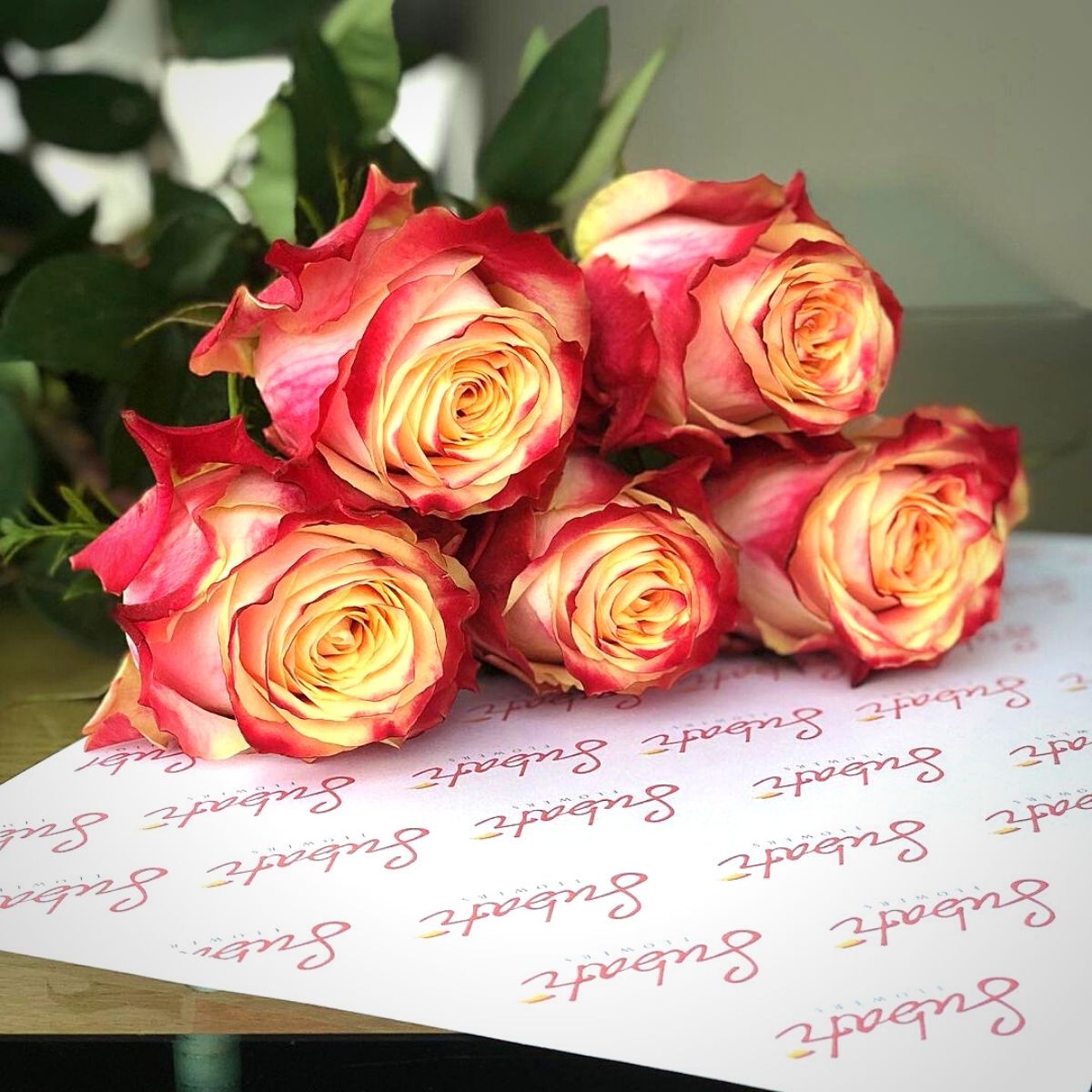
Photo by @subatigroup.
Countries like the Netherlands, Colombia, and Ecuador among numerous others already joined the sustainable flower revolution, implementing eco-friendly practices and inspiring others to follow suit.
Through international collaborations and knowledge sharing, the flower industry is fostering a global network of sustainable growers and suppliers. Best practices are being exchanged, innovative technologies are being shared, and collective efforts are being made to ensure a greener future for the floral trade.
Sustainability Positively Impacts Us and the Environment
The impact of sustainable floriculture goes beyond environmental benefits. It also promotes social responsibility and economic empowerment. Many flower farms have implemented fair labor practices, ensuring safe working conditions and fair wages for their employees.
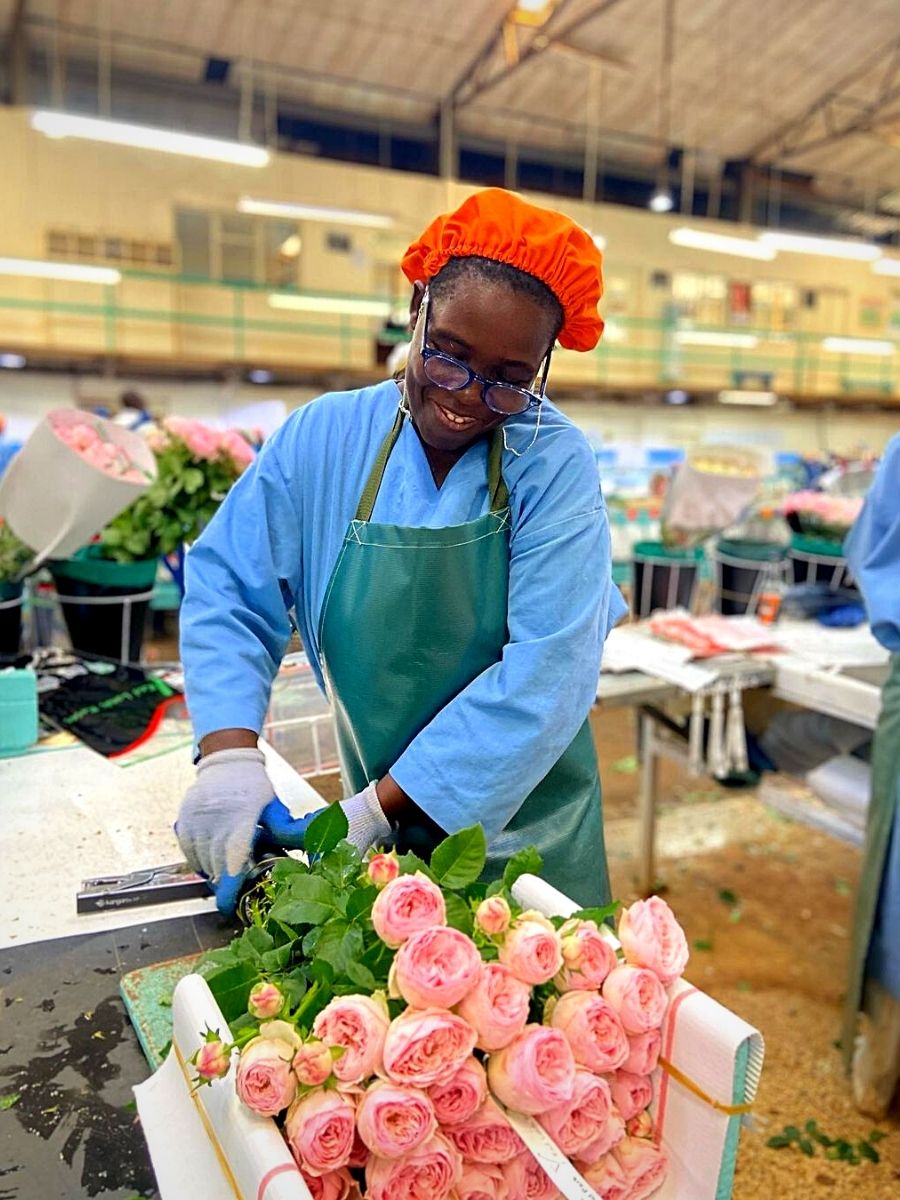
Photo by @red_lands_roses_plc.
By supporting sustainable flower farms, consumers contribute to the well-being of workers and local communities. Moreover, sustainable flower farming has opened doors for small-scale growers to enter the global market.
By adopting environmentally friendly practices and obtaining certifications, these growers can access a wider customer base that values sustainability. This inclusive approach enhances the diversity of the flower industry and promotes economic growth in regions where floriculture is a vital source of income.
A Growing Awareness of Sustainability Issues
As the awareness of sustainability in the flower industry continues to grow, consumers are becoming more engaged in making greener choices. The beauty and symbolism of flowers, combined with their eco-friendly origins, create a powerful connection between consumers and the environment.
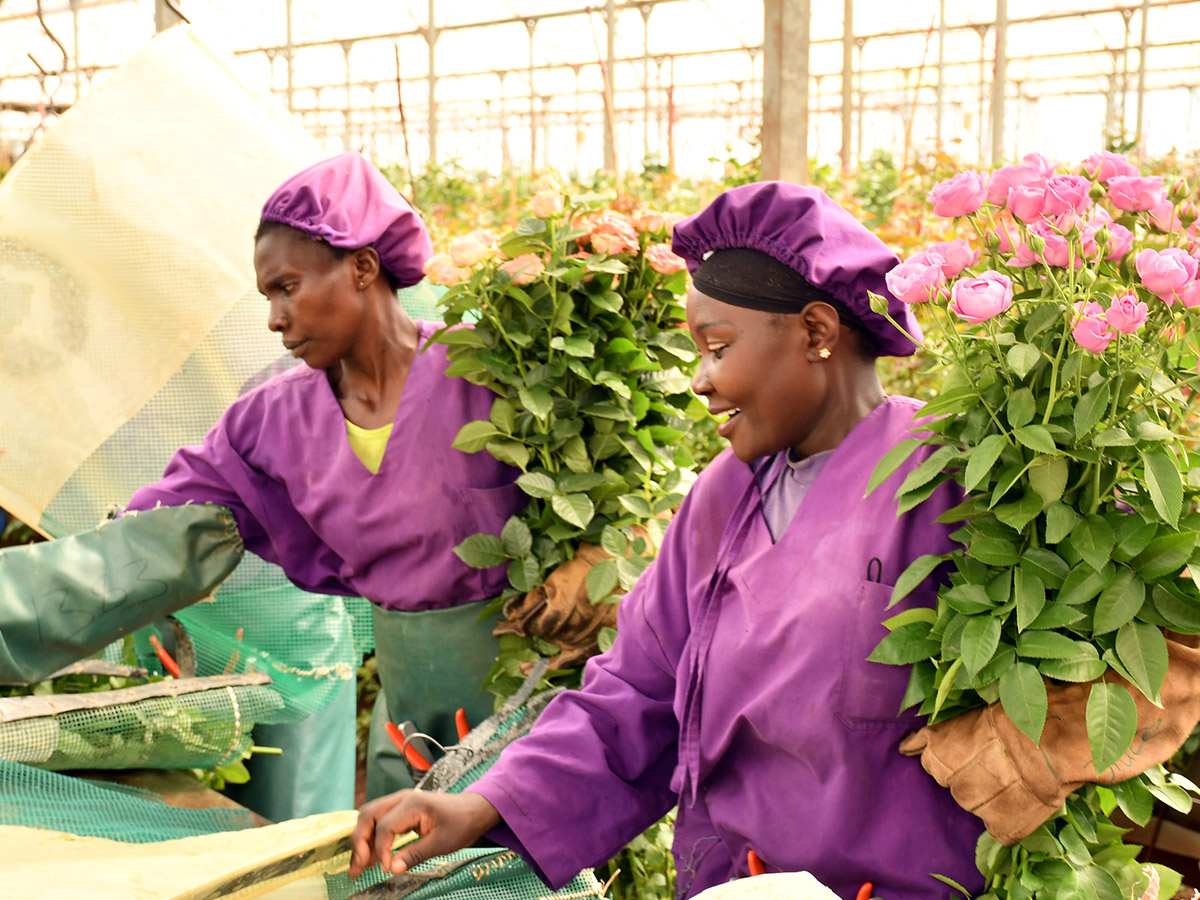
By choosing sustainably grown flowers, customers can express their values and make a positive impact on the planet.
Floral designers and retailers are also playing a crucial role in promoting sustainability. They are sourcing locally grown, seasonal blooms, reducing transportation emissions, and supporting local economies.
Furthermore, they are encouraging customers to repurpose and recycle flowers, minimizing waste and prolonging their beauty beyond their initial purpose.
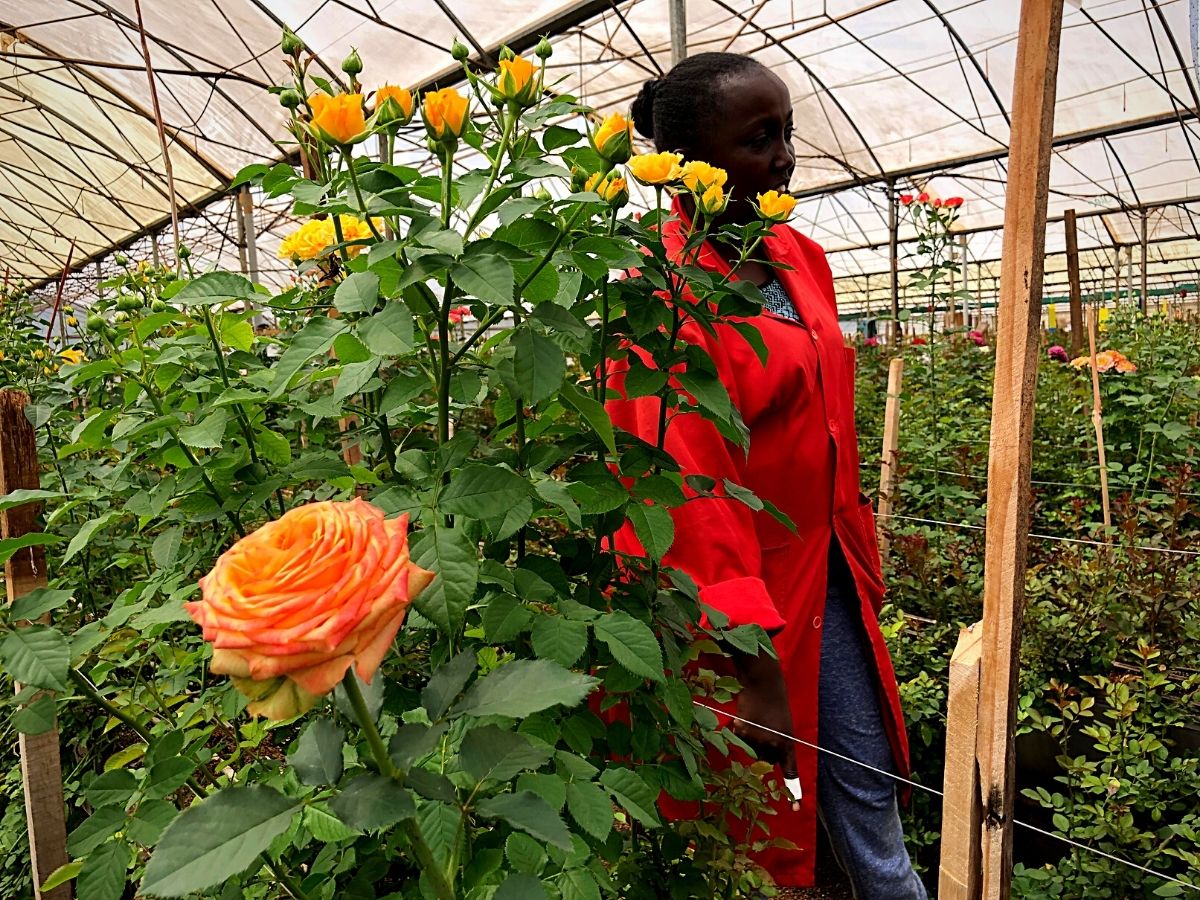
Conscious Decisions on Adopting Sustainability Practices in Floriculture
Customers are empowered to make conscious choices, supporting growers who prioritize environmental and social responsibility. The collaborative efforts of growers, retailers, and consumers are driving the industry toward a greener future.
By embracing sustainability, the flower industry is not only beautifying our lives but also preserving the planet for future generations. Through vibrant blossoms and green initiatives, the industry showcases the power of nature and inspires us all to make a positive difference.
The next time you hold a bouquet of sustainably grown blossoms as the flower sector continues to take root in sustainability, remember that you are not only holding beauty in your hands but also a key to a flourishing green world.

